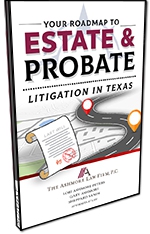 With the continual growing use of our online activities, and our lives being lived, and stored online, as attorneys, it has become necessary to include an entirely new asset type to our list that touches most of the population. This new asset category is referred to as our DIGITAL ASSETS. Most EVERYONE has digital assets. Keep in mind that although many of our digital assets have sentimental value, there are many digital assets that do in fact have a monetary value.
With the continual growing use of our online activities, and our lives being lived, and stored online, as attorneys, it has become necessary to include an entirely new asset type to our list that touches most of the population. This new asset category is referred to as our DIGITAL ASSETS. Most EVERYONE has digital assets. Keep in mind that although many of our digital assets have sentimental value, there are many digital assets that do in fact have a monetary value.
The following are a few examples of the most common digital assets people own.
- PayPal
- ITunes
- Amazon
- Kindle
- Bitcoin
- EBay
- Shutterfly/Snapfish
- Email Accounts
- Online Banking
- Investment Accounts
- Stock Trading
- Websites and Domain Names
I could probably go on for pages and pages listing all of the possible digital assets that exist, but I think you get the idea. With the continuing tax changes we see, and this new world of digital assets, our roles as estate planning attorneys have taken on an entirely new direction. Everyone now not only needs their traditional estate plan, but now everyone needs a digital estate plan. There are too many issues that can arise if you do not have the proper plan in place for your digital assets. For a more comprehensive and complete discussion, we encourage you to speak with a qualified estate planning attorney.
Below are examples of what happens to your digital assets when you die and things to consider when planning for these digital assets.
After you die, Facebook allows your immediate family, upon verification, to memorialize your account, delete your account or remove it. Recently, there has been a new option added to Facebook called a “legacy contact”.
In February of this year, Facebook announced a policy that allows you to designate a “legacy contact,” who’ll be allowed to pin a post on your Timeline after your death. The contact won’t be able to log in as you or read your messages but will be allowed to respond to new friend requests, update your cover and profile photos, and archive your Facebook posts and photos. You can find the “legacy contact” in the security section of your Facebook.
Did you know that it has been reported that 70% of 65-74-year-old Americans are on Facebook and there are 30 million accounts on Facebook that belong to individuals who are no longer alive? That’s a staggering statistic! It’s important to outline your wishes regarding your digital assets, and perhaps even appoint a digital executor to manage them correctly if something happens to you.
Twitter is very clear that it will not give anyone access to a deceased user’s account. However, they will accept a request from an immediate family member, or estate representative, to deactivate the account. Keep in mind, Twitter has a list of the required documentation for an immediate family member or estate representative to show proof they are who they say they are.
As with Twitter, Pinterest will not give anyone a deceased account user’s login information, and like Twitter, a Pinterest account can be deactivated, as long as the list of required documentation can be provided.
Instagram requests someone gets in contact with them regarding a deceased user’s account, which can be found in their privacy statement.
Google will work with immediate family members and representatives to close online accounts in some cases once a user is known to be deceased. Before your death, you can use Google’s Inactive Account Manager to let them know who should have access to your information, and whether you want your account to be deleted.
How many of you actually read the fine print when you sign up for most online services? I suspect that your answer is “you don’t.” We recommend as you set up your estate plan for your digital assets you review the “fine print.” Most accounts’ “Terms of Service” (TOS) will explain what happens to your email accounts when you die, as well as other digital assets.
TOS almost always gives you a non-transferable license. What does this mean? No one else can access your account after you die. It is always important to remember there is a strict federal law that governs the release of private messages, like email. Federal law does not allow any email services to release any email communications without a Court Order, or consent from the individual user. Although there may be options that would allow heirs to gain access, we strongly urge that you speak to a qualified attorney to ensure your loved ones act within the law.
Financial Data
Your Financial Data is perhaps one of the most crucial, and monetarily valuable, of your digital assets. The greatest gift you can give your loved ones is a list of all of your pertinent information including, but not limited to, your username, password, account number, the service provider you use to check on your investment or banking account, etc.
Whoever you put in charge of your assets when you die must be aware of the laws that govern their ability to access this information and the legal documentation required to access this information.
It is important to appoint a digital executor, outline what you want to happen to your digital assets, and have all of your affairs in order. In addition to having an estate plan for your “traditional” assets, you must also have an estate plan for your digital assets. The bottom line is to be RESPONSIBLE. Being prepared will save your loved one's time, money, and stress!
Do You Need To Speak With An Experienced Estate Planning Lawyer In The Dallas Area?
If you need to speak to an experienced estate planning attorney please contact us online or call our Dallas office directly at 214.559.7202. We help clients throughout the Dallas area with all of their estate planning needs and look forward to helping you.


